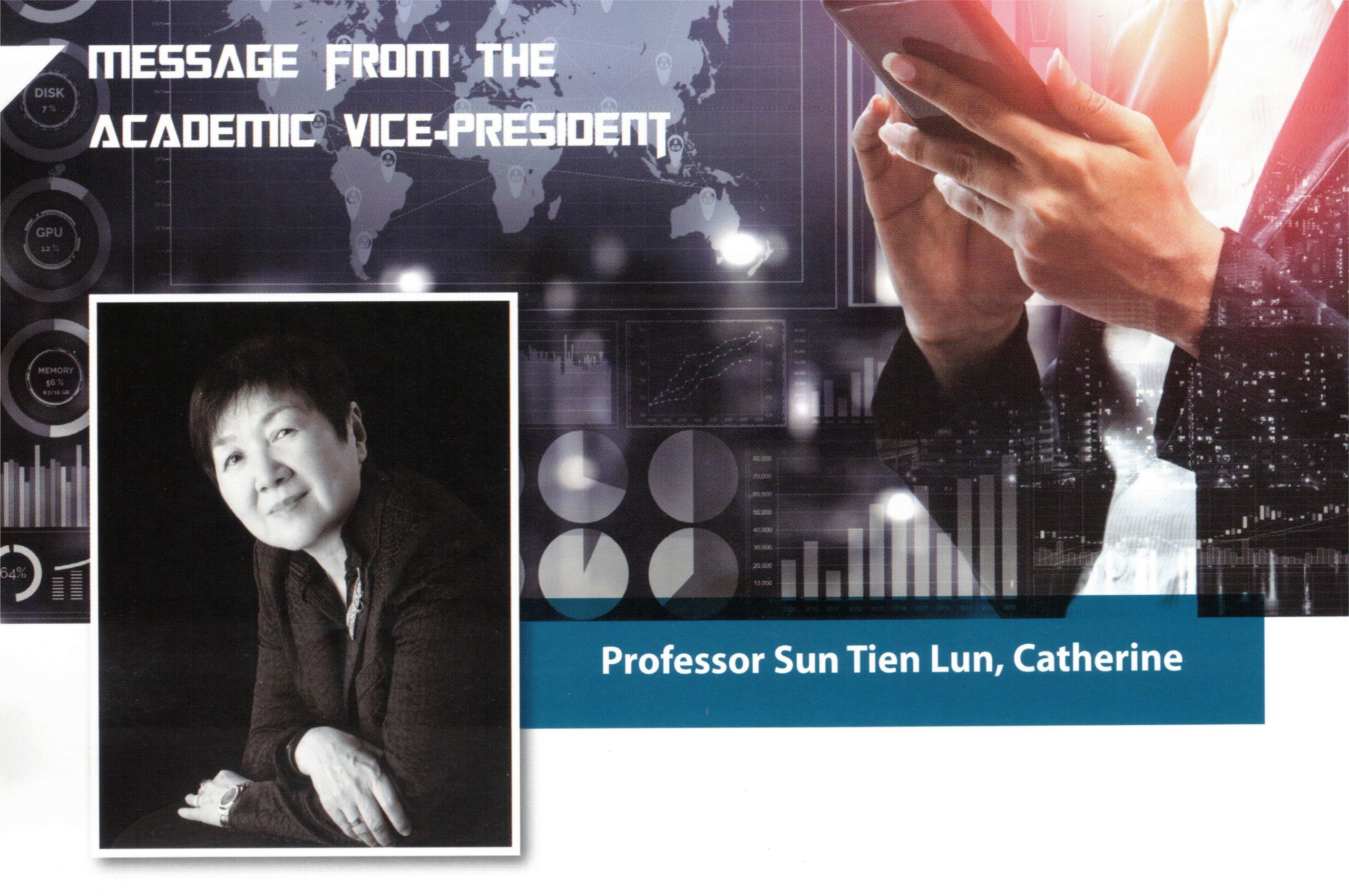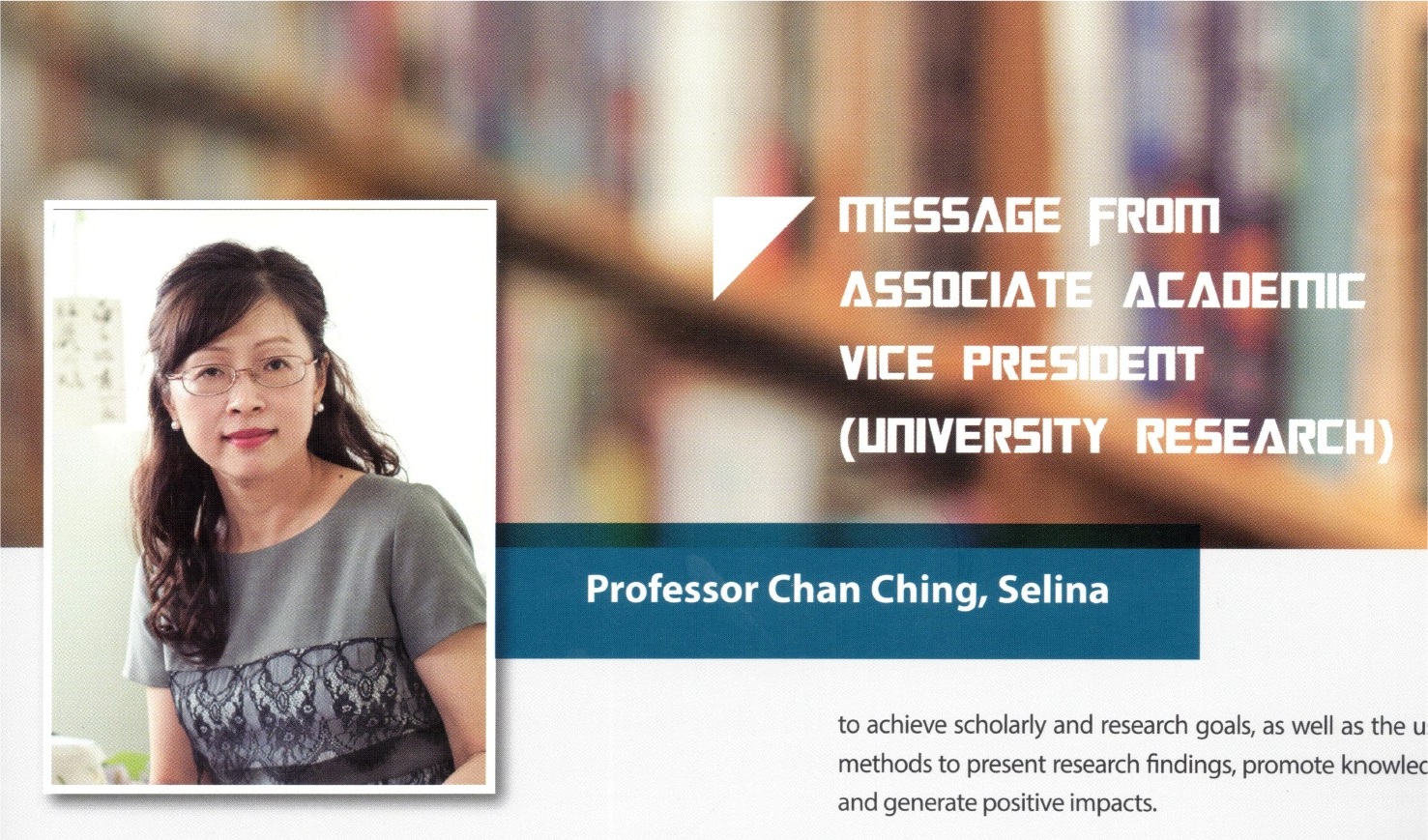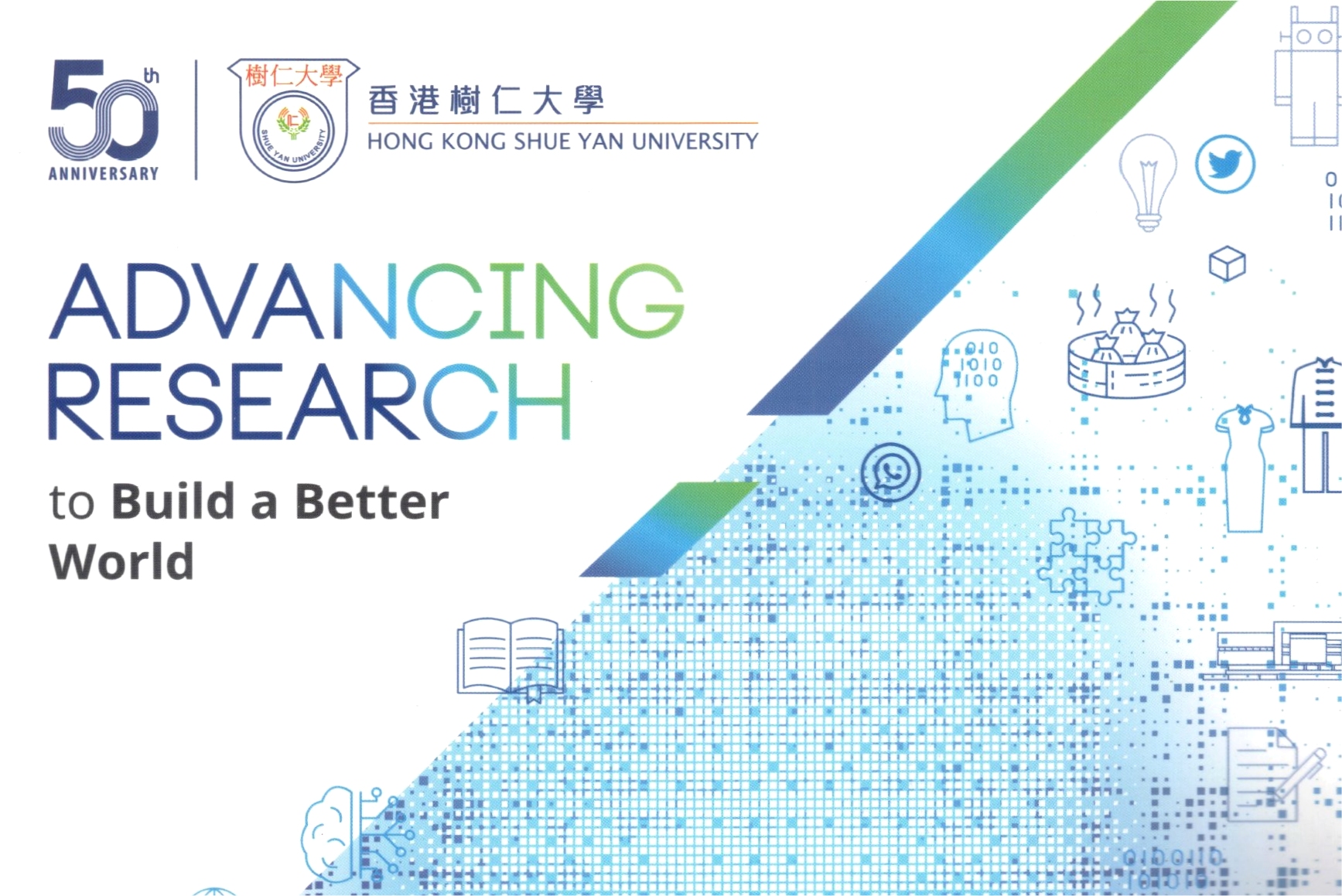Hong Kong Shue Yan University (SYU) has gone beyond its commitment as a “teaching-led, research-active” university to use research to inform and benefit teaching and learning, and has already begun to engage in research aimed at producing substantive impact on the various aspects of social life, according to Professor SUN Tien Lun, Catherine, Academic Vice President of SYU.
In the “Message from The Academic Vice-President” of the recently published bi-annual newsletter of the University’s Research Office, Professor SUN said: “Hong Kong Shue Yan University is a teaching-led, research–active institution. In this context, research serves primarily to inform and invigorate teaching and learning. However, the research output of the past two years indicates that research at SYU has travelled far beyond this context. While emphasizing the impact of research on teaching and learning, we have simultaneously been engaging in research aimed at producing substantive impact on the various aspects of social life.”
“Indeed, the old-school image of scholars and researchers hiding away in their ivory towers creating knowledge for knowledge’s sake is an image of yesterday, as today we are much more immersed in the idea of knowledge transfer – the double loop of transferring knowledge to practice, which impacts our lives, and the assimilation of data from practice, which enriches knowledge and further informs practice. Research these days has taken on a dramatically different look, which is ever-evolving – particularly when we include big data analytics, machine learning, and immersive technologies such as VR and AR. This is where SYU finds itself in this remarkable era of academic research,” Professor SUN added.

Prof. SUN: digital humanities is burgeoning
Talking about the opening of the iFREE Group Innovation and Research Centre, Professor SUN said it sets the main stage for SYU to move towards this new era. “The Centre, which houses a big data lab, a social robotics and digital living lab, and a VR cave, will hopefully provide researchers and students with the capability to migrate their research to the digital age. To this end, we have created and sought to continue creating partnerships with leading IT firms such as IBM, Huawei, Amazon Web Services, iFREE, and many others. This new development will make our existing foci on interdisciplinarity and research in evidence-based practice even more vigorous and relevant.”
“Resonating with the University’s strategic development theme to ‘reinvent liberal arts education in the digital age, research in digital humanities is also burgeoning,” Professor SUN said. “For instance, through funding provided by the HKSAR Government’s Intangible Cultural Heritage Office of the Leisure and Cultural Services Department, a virtual Hungry Ghost Festival Museum is being created. The Museum aims at enhancing the understanding of national intangible cultural heritage, as well as shedding light on the present through real (albeit virtual) contact with the past. Another example in this respect is a recently launched study that uses machine learning to identify and assess dyslexia in Chinese language.”
Talking about the creation of substantive social impact, Professor SUN said SYU’s researchers have produced publications relating to topics as caregiving for schizophrenic parents, empowering underprivileged parents to support the executive functions of their children, post-treatment life-planning and relapse-prevention for rehabilitated drug abusers, home palliative care support, to name a few.
Prof. Selina CHAN encourages research that benefits communities
Also in the newsletter is an overview of the use of new technology in doing research and promoting knowledge transfer at SYU by Professor CHAN Ching, Selina, Associate Academic Vice President (University Research).

Professor CHAN said: “We are now living in the digital age – bombarded by massive amounts of information – with diverse narratives competing to become knowledge, and complex interactions between science, technology, and society being observed. To fit the needs of industries, cultural institutions, governments, and educational institutions in the age of technology and the knowledge economy, the University reinvents liberal arts education by combining traditional liberal arts education with digital technology. We encourage colleagues and students to engage with new technology in the process of creating knowledge and generating social impact. We promote the use of digital data to achieve scholarly and research goals, as well as the use of digital methods to present research findings, promote knowledge transfer, and generate positive impacts.”
Talking about the three new laboratories opened in October 2020, Professor CHAN said with the establishment of the Big Data Laboratory, the Virtual Reality Laboratory, and the Social Robotics and Digital Living Laboratory, as well as the Applied Data Science Department, the university promotes relevant interdisciplinary research projects as well as tailor the department’s teaching and research programmes towards the applications of technical skill-sets in the field of social sciences and humanities.
“The Big Data Laboratory facilitates research projects related to big data, data analytics, data mining, machine learning, data visualization, content demonstration, and/or assignments. The Social Robotics and Digital Living Laboratory supports research projects that involve the use of socially interactive robots in personal settings such as home, health, workplace, market, and education. The Virtual Reality Laboratory facilitates research projects examining VR/AR applications in content design and content consumption from social, cognitive, and behavioural science perspectives,” she said.
According to Professor CHAN, in light of the COVID-19 pandemic and the rise of the new normal, the Research Office is committed to raising the university’s profile by proactively supporting colleagues to explore interdisciplinary research in digital humanities, and develop research on the post-pandemic changes in socio-cultural and economic life. “By encouraging colleagues to further engage in multilateral communication with different stakeholders (e.g., communities, professional bodies, civil societies, the government, etc.), new theories and practices to meet local and global needs could be developed for a better future.”
Source: January 2021 Issue
